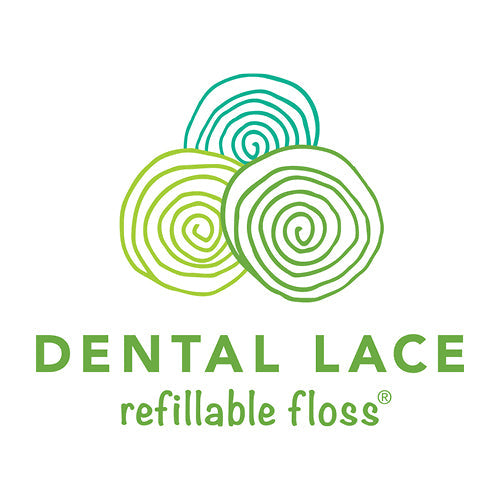How Vegan and Low-waste Products Make a Positive Impact on the Environment
By: Hazel Bennett
If you're trying to live a more eco-friendly lifestyle, introducing vegan, low-impact, or zero-waste products into your daily routine is a great way to start. While making the switch to a more sustainable way of living may be difficult and confusing at first, choosing everyday items that reduce waste and help the environment lets you improve the planet little by little.
Knowing the Differences
Over the last several years, eco-friendly practices like veganism, low-impact living, and zero-waste living have become increasingly popular. While there is some overlap between these three practices, each one has its own goals and guidelines. Understanding the slight differences between these ideologies can
help you practice them to the fullest extent.
What It Means to Be Vegan
Being vegan means that you exclude all animal-exploiting products from your home, diet, and daily life. Consuming meat and dairy products, wearing fur and animal hide clothing, and using medications and beauty products that get tested on animals are strictly off-limits for practicing vegans. A vegan lifestyle can even influence the types of entertainment activities you choose. Instead of going to
a traditional zoo or aquarium, vegans often spend their time supporting local animal shelters and sanctuaries that help animals find safe, permanent homes. Practicing vegans might also attend workshops and events that participate in eco-friendly initiatives and promote veganism.
Defining a Low-impact Lifestyle
Reducing your environmental footprint is the main focus of living a low-impact life. Along with urging local governments to create policies that address pollution and climate change concerns, individuals who practice low-impact living try to keep items out of landfills by shopping secondhand and buying products from local stores and markets. In their everyday lives, those practicing a low-impact lifestyle strive to discard as little trash as possible and avoid actions that pollute the planet. Some people repair and reuse damaged household items
instead of buying new ones, while others use public transportation instead of driving gas-guzzling cars. Essentially, these individuals do anything they can to reduce their effect on the environment.
What Is a Zero-waste Lifestyle?
Ultimately, the goal of a zero-waste lifestyle is to throw away as little trash as you possibly can. Some practitioners call this lifestyle low-waste living since producing absolutely no waste at all is nearly impossible. Whatever you choose to call it, this movement is about making changes that reduce the amount of trash you create on a daily basis.
Some zero-waste practices include opting for canvas shopping totes and washable glass jars over plastic bags and single-use containers that often end up in the trash when you finish with them. Choosing reusable water bottles instead of plastic ones and buying things in bulk helps you steer clear of extensive wasteful packaging as well.
How These Sustainable Ideas Help the Environment
Studies have shown that something as simple as eating a vegan or plant-based diet can have a positive impact on our planet. Meat and dairy processing plants are huge contributors to greenhouse gas emissions. According to the research, switching to veganism can reduce your carbon footprint by up to 73%.
By choosing vegan haircare, makeup, and beauty products, you can help prevent cruel and harmful animal testing. Many vegan products also come in recycled, reusable, or biodegradable packaging, so they're an excellent choice for those who want to reduce waste production and keep the planet cleaner.
Adopting a low-waste or zero-waste lifestyle can have a positive effect on the environment too. Producing less trash means that fewer items will end up in landfills, leading to reduced carbon emissions and less air pollution. It can also help cut back on the garbage and debris that often ends up in our forests and oceans.
Along with benefiting the planet, switching to compostable and reusable products that reduce waste can help local communities. Regional landfills sometimes contaminate nearby water supplies, making it unsafe to drink. Decaying materials such as plastics also may pollute the air, which can cause respiratory issues and other health complications after prolonged exposure.
Products to Help You Go Vegan or Switch to Low-Waste Living
With thousands of sustainable products on the market, it may be difficult to decide which ones will best suit your lifestyle. Thankfully, many of these items have special markers or packaging that let shoppers know whether the products are vegan, eco-friendly, or cruelty-free. Consider environmentally-friendly items like:
Cleaning Products: Whether you're looking for sanitizing agents for the kitchen or chemical-free air fresheners for the bathroom, opting for eco-friendly cleaning products is an easy way to keep your house looking and smelling fresh while also helping the environment.
Hygiene Products: Many supermarkets and convenience stores carry compostable shampoos, zero-waste toothpaste, and vegan dental floss. Buying these products lets you maintain your healthy grooming practices while reducing your carbon footprint.
Furniture and Bedding: When outfitting a new home, consider choosing a home decor company that sells vegan and cruelty-free furniture like non-toxic mattresses, faux fur bed linens, and faux leather sofas.
Compostable Bags: Prevent plastic shopping and trash bags from ending up in landfills by switching to compostable bags. Plant starches and vegetable matter are the primary materials in these products, meaning that they break down over time instead of polluting the soil.
Cups and Dinnerware: Compostable cups, plates and eating utensils are another biodegradable option for your home. Whether you’re hosting a party or want a night off from washing the dishes, this dinnerware is a perfect disposable option that protects the environment.
Start Small
Going vegan, switching to low-impact living, or adopting a zero-waste lifestyle can be challenging tasks, so consider starting with small changes. Invest in a reusable water bottle or coffee mug instead of choosing single-use options. Or, purchase a cloth grocery bag for your next shopping trip to avoid using the plastic bags at the store.
While it may not seem like much, implementing a few of these small changes every day is the first step to living a more eco-friendly life. By selecting vegan meal options, choosing compostable household items, and reusing things instead of throwing them away, you can avoid products that harm animals, help reduce pollution, and do your part to make the planet a better place to live.




